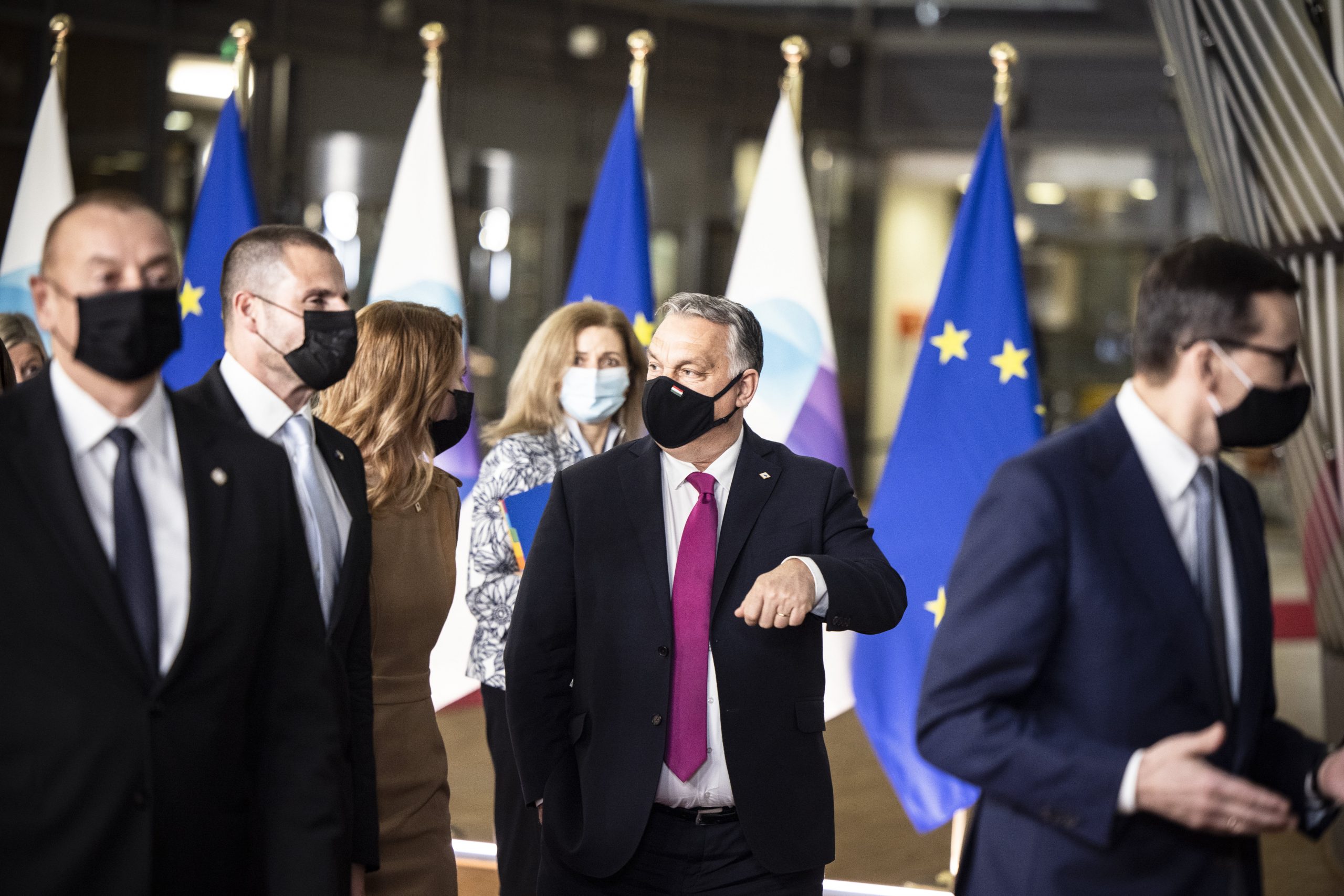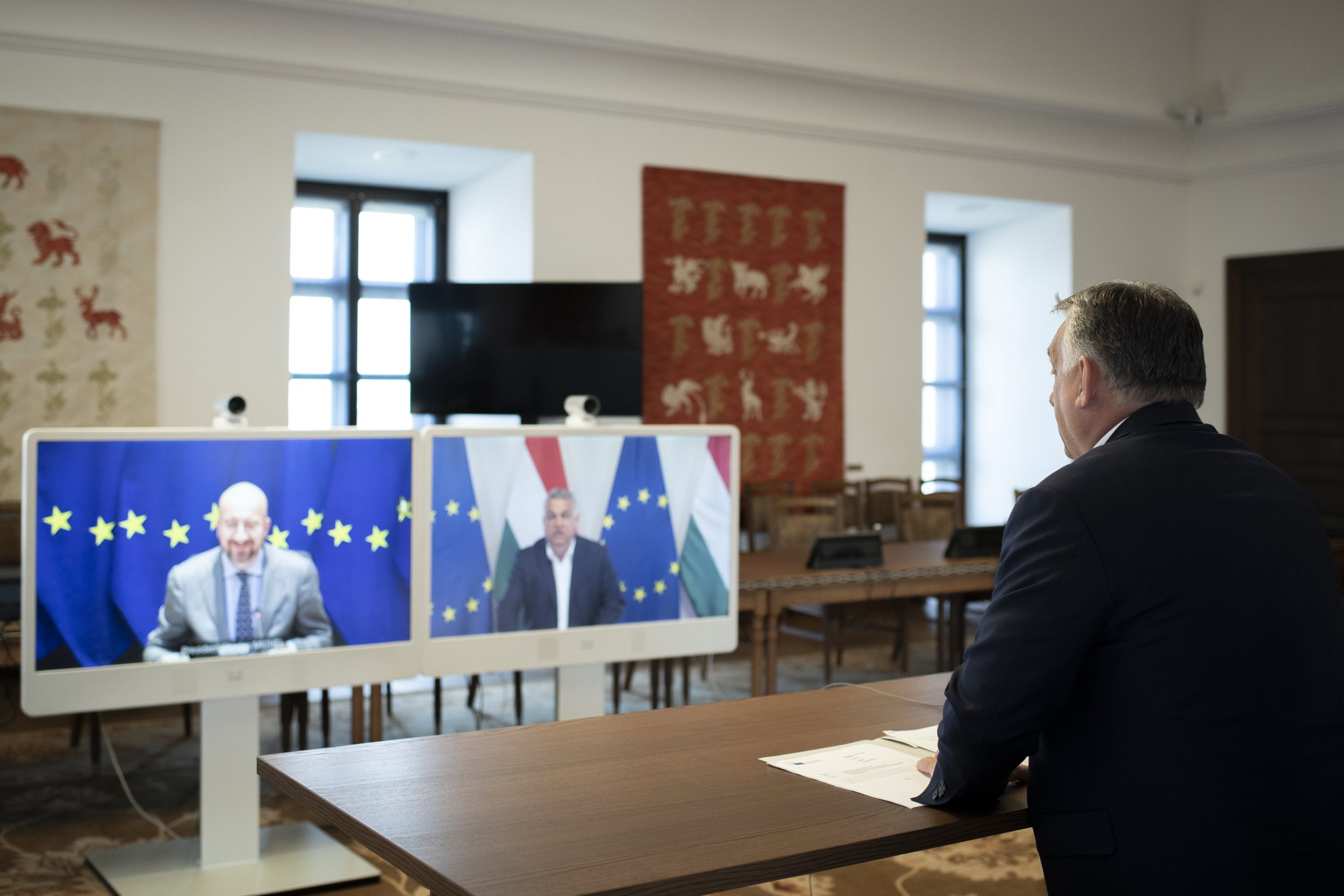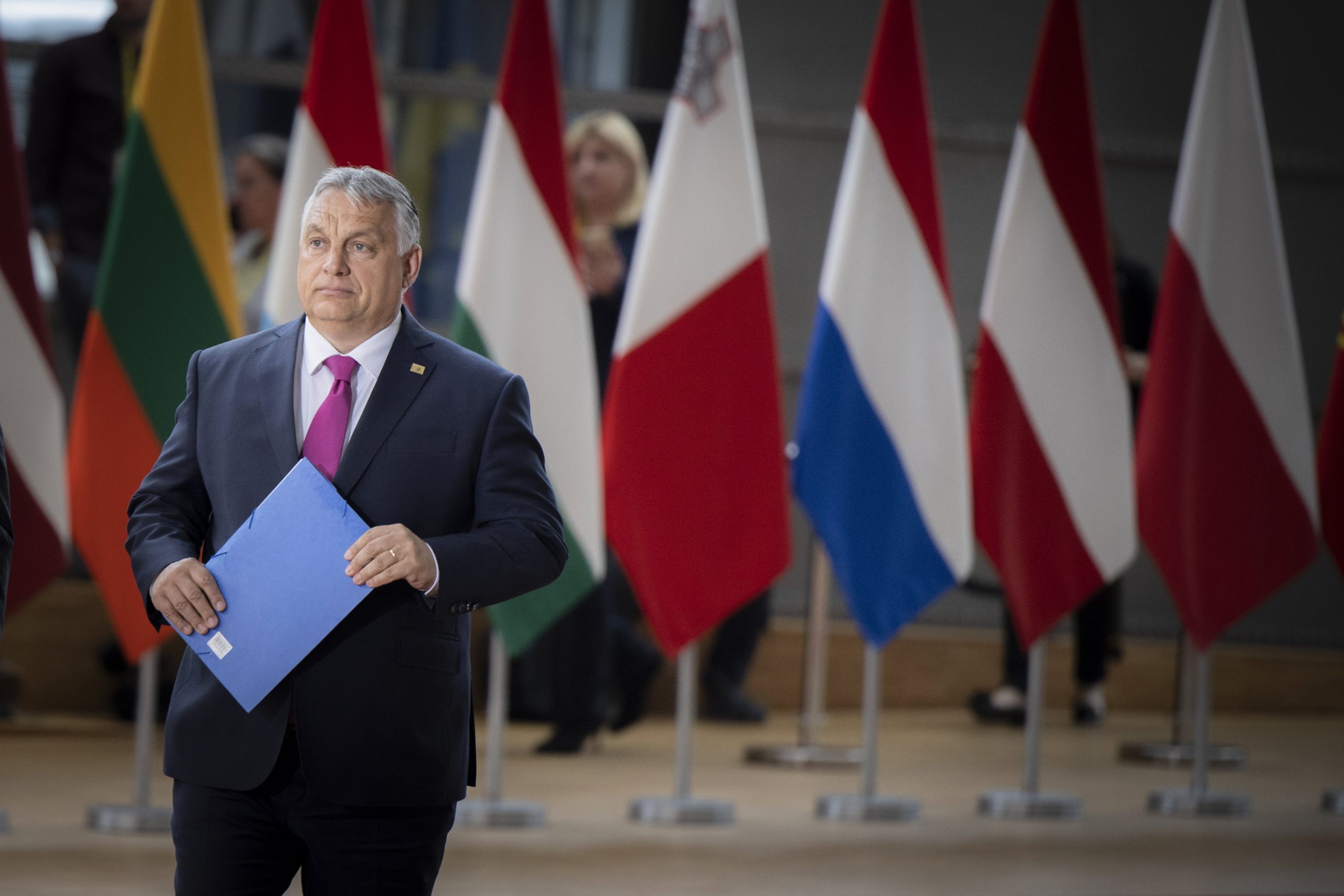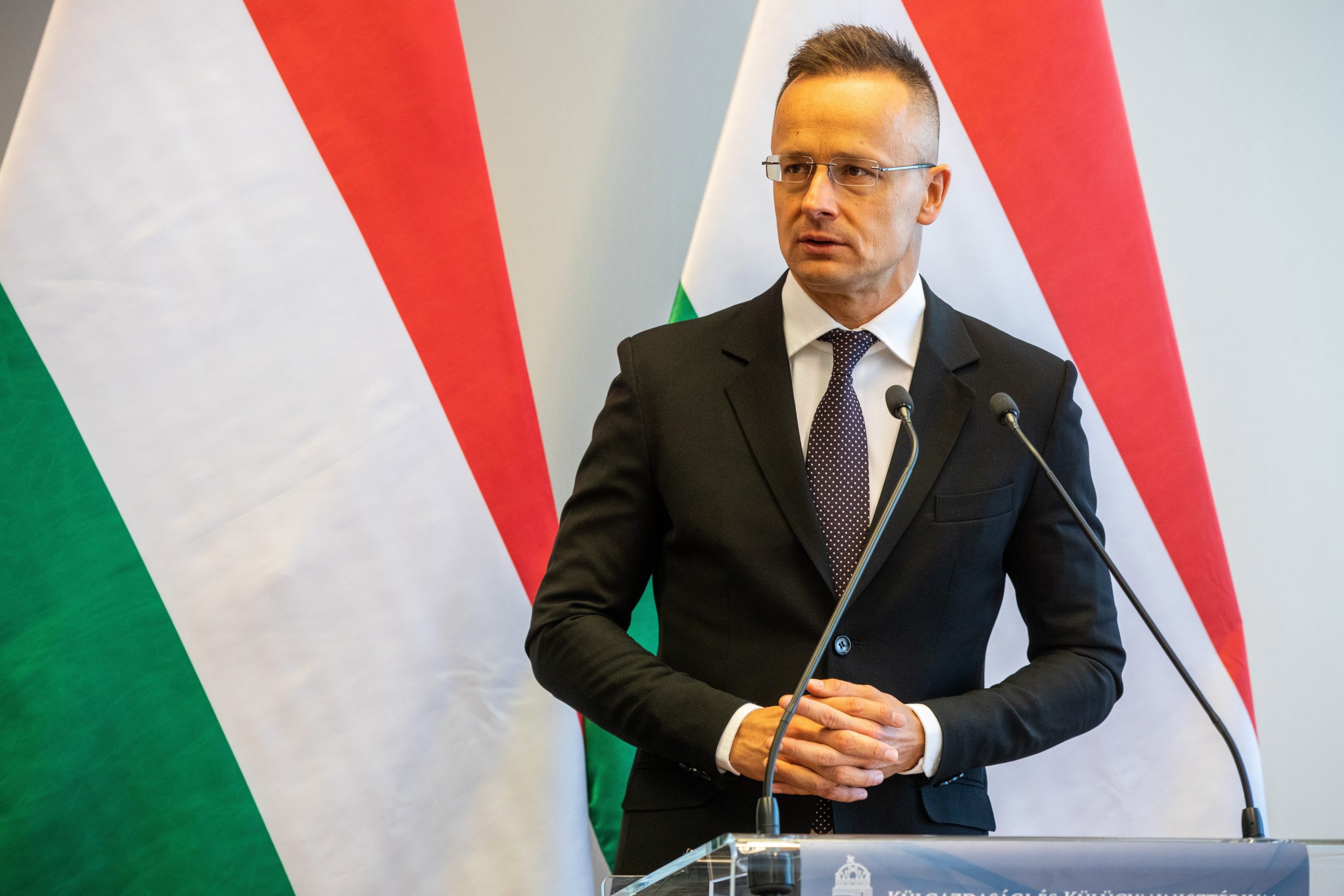
The draft sanctions include a clause stating that the embargo only applies to Russian oil arriving by tanker, while oil arriving by pipeline is exempt from the import ban.Continue reading

As we previously reported, the EU Member State leaders reached a partial agreement on the sixth round of sanctions against Russia. To persuade the Hungarian government to comply, the draft sanctions include a clause stating that the embargo only applies to Russian oil arriving by tanker, while oil arriving by pipeline is exempt from the import ban. The foreign press also reacted to the agreement, mentioning Hungary and Prime Minister Viktor Orbán’s conditions.
The New York Times writes that Viktor Orbán’s country depends more than Western Europe on Russian energy, and had held up any agreement on an oil embargo, calling it an ‘atomic bomb’ to the Hungarian economy. The paper called the unanimity rule of the EU, in this case, a “weakness.” According to the Times, the embargo was tailored to win Mr. Orbán’s support. Prohibiting Russian oil deliveries aboard tankers would eliminate two-thirds of E.U. imports while having no effect on Hungary, a landlocked nation. The New York Times also quoted Orbán when he arrived at the E.U. summit on Monday about the pipeline exemption, saying that “It’s a good approach.”
The American newspaper also adds that in NATO, which also operates by consensus, Turkey has blocked the admission of Finland and Sweden, which have been sufficiently alarmed by Russia’s war on Ukraine to abandon their long-held neutrality. Western diplomats predict that President Recep Tayyip Erdogan of Turkey, who has been as contentious a partner to NATO as Mr. Orbán has been to the European Union, will wring concessions from the allies but ultimately accede.

The draft sanctions include a clause stating that the embargo only applies to Russian oil arriving by tanker, while oil arriving by pipeline is exempt from the import ban.Continue reading
Politico goes as far as to say that EU leaders “surrendered” to Orbán. “If you look at the whole month affair,” an EU diplomat said of Orbán’s obstruction efforts:
Yes, he got a lot — and kept everyone hostage,”
according to Politico. They also report that European Commission President Ursula von der Leyen who traveled to Budapest to negotiate with Orbán, now said: “I am very glad that the leaders were able to agree in principle on the sixth sanctions package. Thanks to this, the Council should now be able to finalize a ban on almost 90 percent of all Russian oil imports by the end of the year.”
The political paper also reports that Charles Michel, von der Leyen, and some national leaders insisted that the European Council would revisit Hungary’s most important exemption – permission for Russian oil to continue flowing through the southern section of the Druzhba pipeline (also referred to as the Friendship pipeline) – “as soon as possible.” When challenged about the fairness of one EU country effectively not participating in the ban, officials insisted that Hungary faced special “security of supply” issues because it has no seaports — therefore making it unable to take delivery of oil by tanker.

"We brokered an agreement that states that those countries that get oil delivered via pipeline may continue managing it under the old conditions," he said.Continue reading
Dutch Prime Minister Mark Rutte even said that heads of state and government would take up the matter again at their very next summit toward the end of June. But for all practical purposes, the exemption has no limit, Politico adds, and also reports that officials said they would work to improve infrastructure that would allow Hungary to receive more oil through an alternative pipeline from Croatia, at which point Budapest’s exception could be phased out. This could also be important because the southern Druzhba pipe runs through Ukraine, making it vulnerable to sabotage or damage from the war.
As we also reported earlier, Politico also added that Hungary was not the only country to voice objections, though it was the most forceful in its demands.
The president of the European Council, Charles Michel, hailed the deal as a “remarkable achievement,” after tweeting on Monday night that sanctions will immediately impact 75% of Russian oil imports, “cutting a huge source of financing for its war machine,” The Guardian reports. According to the British paper, Orbán, in typically pugnacious style, attacked the commission for what he called its “irresponsible behavior” and blamed it for creating a “difficult situation.”
Expanding the capacity of the Adria pipeline would guarantee Hungary and Slovakia secure supplies, he said.Continue reading
In addition, The Guardian also wrote about Orbán insisting on guarantees of oil supply, in case anything happened to the Druzhba pipeline. They also reported that the EU’s foreign policy chief, Josep Borrell, tweeted:
A landmark decision to cripple Putin’s war machine. Our unity is our strength.”
Michel was also worried about this unity before. According to Politico, at a news conference he said:
We don’t underestimate all the difficulties. We know that we needed a few weeks before we were able to make such a decision.
But I think it’s a very strong signal that we sent today, because the recent hours, the recent days, there were speculations about the risk for a lack of unity, of European Union unity.” He added, “I think that more than ever, it’s important to show that we are able to be strong, that we are able to be firm, that we are able to be tough in order to be able to defend our values, to defend our interests.”
Featured image: Prime Minister Viktor Orbán holds a video conference with Charles Michel, President of the European Council, in preparation for the extraordinary EU summit on May 30-31, 2022 at the Carmelite Monastery in Carmelita, on May 23, 2022. Photo by Vivien Cher Benko/MTI/Prime Minister’s Press Office
Array
(
[1536x1536] => Array
(
[width] => 1536
[height] => 1536
[crop] =>
)
[2048x2048] => Array
(
[width] => 2048
[height] => 2048
[crop] =>
)
)